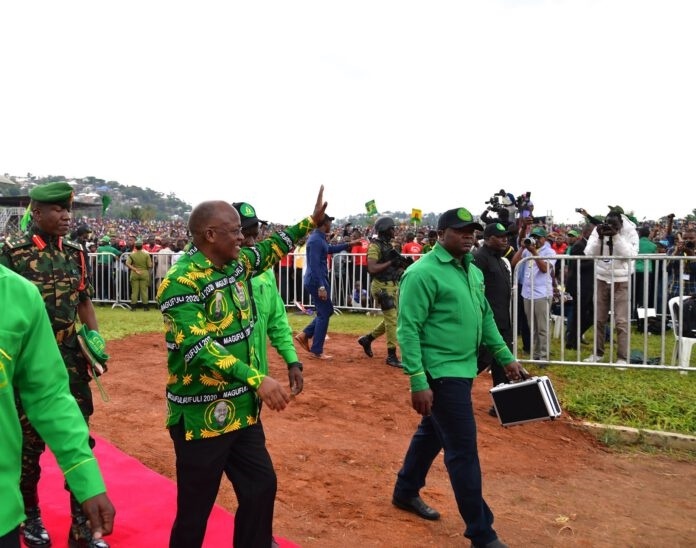Dar es Salaam — Tanzania authorities have tightened restrictions on the media, political opposition, and organizations working to promote human rights—ushering in a climate of fear ahead of the October 28 general elections.
International advocacy group, the Human Rights Watch has released a chorus of criticism, accusing Tanzania government of repeatedly intimidating opposition politicians, and banning newspapers deemed critical, denying human rights groups the right to provide civic education and elections monitoring while blackmailing independent journalists from reporting the COVID-19 crisis.
Repressive Laws
Since coming to power in 2015, the government under President John Magufuli, has enacted and enforced tougher laws that campaigners say stifle civil liberties and basic rights to expression and association.
Such laws including the Cyber-crime Act of 2015 which severely restrict online communications, and effectively criminalizing social media content critical of the government.
The government has also toughened the Electronic and Postal Communications (Online Content) Regulations, ostensibly to punish online users who publish content likely to violate public order, or those organizing demonstrations, or promoting hatred or racism.
Oryem Nyeko, African researcher at Human Rights Watch said Tanzania’s government move to repress civil liberties, raise doubts about the elections being free and fair.
“All of the actions that the government has taken, affect conditions for a fair electoral playing field,” Nyeko said.
For the elections to be free and fair, he added, Tanzania’s authorities should allow political opposition to express their views and rights group and the media to work freely.
Since June Tanzania police have repeatedly arrested members of the opposition, critics, and activists, charging them with offenses such as “unlawful assembly” and “endangering peace”, the rights group said.
The government has also adopted tougher regulations officially banning local TV and Radio stations from airing foreign-produced contents without approval.
Independent Voice Blackmail
Early in July, Tanzania Communications Regulatory Authority (TCRA)—the state-run communications watchdog banned Kwanza TV, an online television station for allegedly airing a biased report on COVID-19.
Campaigners accuse the government of intimidating independent journalists, forcing them to refrain from covering the opposition’s campaign rallies notably the main opposition party Chama Cha Demokrasia na Maendeleo (CHADEMA), whose Presidential candidate, Tundu Lissu miraculously survived a politically-motivated assassination attempt in which he was shot 16 times in 2017.
“Citizens must not sit idly while their hopes, dreams, and rights are eviscerated by a political party determined to stay in power at any cost,” tweeted Robert Amsterdam, an international lawyer representing Lissu.
Electoral Observation
Meanwhile, the Tanzania’s National Electoral Commission (NEC), has banned key advocacy groups including the Tanzania Human Rights Defender Coalition (THRDC) from providing voters’ education ahead of the election.
Onesmo Ole Ngurumwa, THRDC, National Coordinator believes the move is irrational and out of fear, given their solid track record to carry out their duties professionally and objectively.
“More active NGOs have been excluded because of this fear” Ole Ngurumwa told Ubuntu Times.
Ole Ngurumwa, who was briefly arrested last month for failure to submit THRDC agreements with its donors, said the organization has suspended its operations after authorities froze its bank accounts, pending investigation on alleged money laundering.

